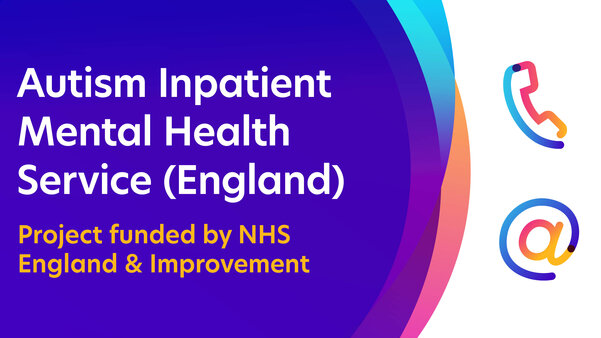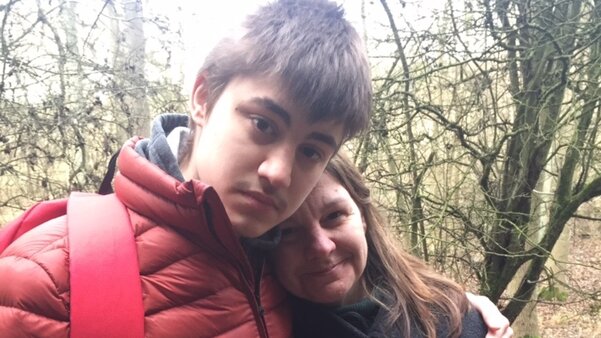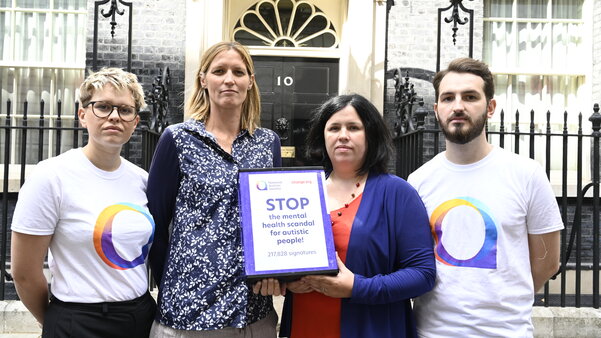Introducing our Autism Inpatient Mental Health casework service
Published on 01 September 2020

Update: As of 2 October 2024 our Autism Inpatient Mental Health Service closed to new referrals.
Despite years of promises from Government, hundreds of autistic people are stuck in inpatient mental health hospitals instead of living full lives in the community, near their family and friends.
We will continue to campaign to stop this scandal. But now thanks to new funding, our new service will give confidential advice and support autistic people at risk of going into inpatient units or stuck in them – or their families. We are very grateful to NHS England & Improvement and the Department of Health and Social Care who have provided this funding.
Thanks to the many autistic people and families who have made this service possible, by telling us about their experiences and helping us to design the service. We want to particularly thank Isabelle Garnett, who has given many hours of her time to stop other families going through the same trauma and detention that her son Matthew did.
The new service provides:
- confidential information, advice and support by phone and email
- details about mental health rights and entitlements, to help prevent or challenge detention and secure the care and support autistic people need in their communities
- guidance and support to help autistic people and their families explore their options and make informed decisions
- guidance and support on specific issues, such as getting help from an advocate, finding the right provision in the community, making a complaint or appealing against a decision
- signposting to advice and support from other parts of our charity, including education rights, transition support, and parent to parent.
Why this is needed
Hundreds of autistic children and adults are currently in mental health hospitals in England, often many miles from their friends and family and, in some harrowing cases, subject to seclusion, overmedication and unnecessary restraint. This is a scandal and should not be happening.
We desperately need better social care and community mental health services, so that autistic people can get the help they need before they reach crisis point and don’t end up in mental health hospitals in the first place. And we need a review of the Mental Health Act’s definition of autism as a 'mental disorder' so that autistic people aren’t wrongly sectioned. We will keep campaigning and working with the Government and NHS England & Improvement to make this happen.
And, if someone is admitted into hospital, it’s essential that this is for as short a time as possible and that they’re supported by people who understand autism. This must be in an environment that reflects their needs and there must be a range of services in the community that they can move on to.
The mental health systems are separate for England, Wales, Scotland and Northern Ireland. We currently only have funding to run this service in England but we are campaigning for similar change and services in other UK nations.
Reaction
Isabelle Garnett’s autistic son Matthew spent 15 months under section in a secure unit and was only released after his family’s high-profile campaign. Isabelle continues to campaign for an end to the scandal and played a central role in the development of our new case work service.
Isabelle said: “When my son reached a predictable and preventable crisis point and was inappropriately admitted to inpatient mental health units, it resulted in catastrophic consequences for him and our family.
“I felt powerless to protect my child and didn't know where to turn to for advice and support to get him the 'right support' in the community. I could not be more pleased and relieved to know the National Autistic Society have launched their much-needed casework service. I have no doubt it will be life-changing and help to make 'homes not hospitals' a reality for autistic people.”

Matthew and Isabelle
Alexis is an autistic woman and author of the memoir Unbroken, which recounts the three years she spent “locked inside” mental health hospitals. She has campaigned closely alongside us to highlight the wider scandal and call for action.
Alexis said: “I am delighted that the National Autistic Society is finally able to roll out a much needed, and long-awaited case work service to help autistic people in mental health hospitals or at risk of admission.
“I know that if my family had had access to such a service when I was in crisis, I most likely would have had a much more favourable outcome than the three and half years I spent detained. It’s fabulous that families will benefit from expert advice, signposting and help with exploring options so that those in need can be supported to make decisions about themselves and/or their loved ones.”

Alexis campaigning with us last year
Jane Harris, Director of External Affairs at the National Autistic Society, said: “This service is desperately needed. We’re really pleased it’s up and running with funding from NHS England & Improvement. Thank you to everyone who has made this possible, especially the autistic people and families who have contributed so much to its development.
“Autism is not a mental health condition and hospital is not the right place for the vast majority of autistic people. It’s simply wrong that hundreds of autistic children and adults are living in mental health hospitals right now, often many miles away from home and unable to see family and friends. Just imagine how isolating and scary this is – and it’s even worse during the coronavirus outbreak.
“This new service will help many autistic children and adults over the coming months and years. But it won’t solve the autism mental health crisis. The Government and NHS England & Improvement must do more to stop autistic people from reaching crisis point and ending up in inpatient care in the first place. This means investing in the social care and community mental health services autistic people need and reviewing the Mental Health Act. Only this will end this vicious cycle.”
Further information
- Find out more about what needs to happen to end the scandal of autistic people living in mental health hospitals, rather than the community.
- Bringing us Together have produced this very useful Survival Guide for care and treatment reviews.
- The All Party Parliamentary Group on Autism, with support from our charity, held an inquiry into the state of support and services for autistic people in England – 10 years on from the Autism Act. Find out more by reading about out Not Enough campaign.
